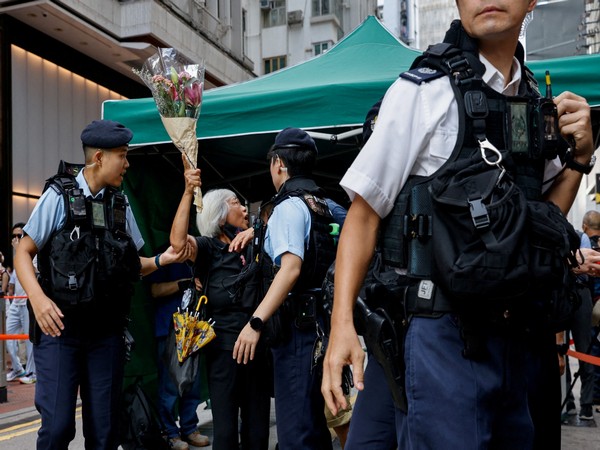Orwellian Clampdown in Hong Kong: China's Vision for a Controlled Future
Chairman Xi Jinping's vision of a 'common destiny for humanity' manifests in draconian measures in Hong Kong. Recent convictions highlight the Chinese Communist Party's strict control over expression, as Hong Kong citizens face prison for wearing protest T-shirts and posting anti-government slogans on social media.

- Country:
- this
Chairman Xi Jinping's term 'common destiny of all mankind' envisions a tightly controlled world under China's influence. This vision involves extreme censorship and suppression, evident in recent actions under Hong Kong's Article 23 national security law.
In mid-September, three Hong Kong citizens were jailed for acts deemed seditious. Chu Kai-pong received 14 months for wearing a T-shirt with a protest slogan. Chung Man-kit got 10 months for graffiti advocating independence, and Au Kin-wai got 14 months for a social media post with revolutionary slogans.
While such acts would be seen as free speech in democracies, the Chinese Communist Party reacts harshly to any dissent. The Hong Kong government maintains its stance on the rule of law, justifying harsh penalties. However, international human rights groups condemn these actions as part of a broader effort to instill fear and suppress freedoms in Hong Kong.
Under national security laws, police encourage informants, resulting in thousands of tipoffs. Chinese youth are increasingly unaware of events like the Tiananmen Square massacre, as the government eradicates historical references. This ideological control aligns with Xi's vision of China's global dominance and suppression of dissent, domestically and internationally.
The CCP's extreme censorship extends to public libraries in Hong Kong, where hundreds of books were removed, echoing historical book burnings. Even senior party officials are scrutinized for reading controversial materials. This pervasive monitoring reflects the CCP's desire to mold thought and behavior, eradicating foreign influences.
Educational materials, too, are tightly controlled, promoting party ideology from a young age. The CCP's approach to ethnic governance emphasizes Han supremacy, marginalizing minority cultures. This aligns with Xi's desire to emulate the Mao era, enforcing strict party adherence at all societal levels.
The latest Asia Power Index shows China's growing influence but unable to surpass the US. Despite its power, China's regime remains authoritarian, pushing an illiberal stance that starkly contrasts with democratic values. From Hong Kong's stringent laws to China's overarching global ambitions, Xi's vision of a 'shared future' involves shaping the world in China's authoritarian image.
(With inputs from agencies.)
ALSO READ
Kerala Film Festival Defies Censorship Hurdles
Debate Ignites Over Roblox Ban in Russia Amid Censorship Concerns
Procedural Lapses or Political Targeting? The IFFK Censorship Controversy
IFFK Forges Ahead with Full Schedule Amid Censorship Controversy
Kerala Defies Censorship at IFFK: A Bold Stand for Artistic Freedom










